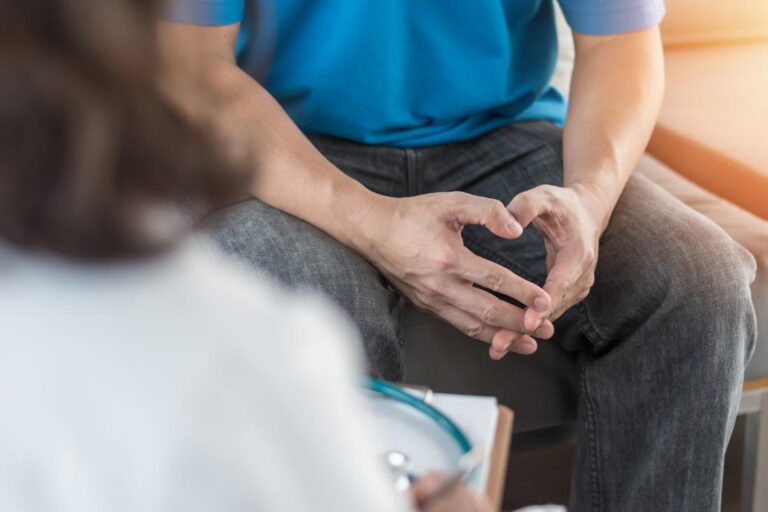The Emotional Impact of Genital Warts: More Than Just a Physical Condition
Genital warts, caused by certain strains of the human papillomavirus (HPV), are one of the most common sexually transmitted infections (STIs) in the United States. While much of the focus on genital warts is on the physical symptoms, there’s another side that often goes unaddressed: the emotional and psychological impact. Living with genital warts can be stressful, embarrassing, and emotionally taxing. Understanding the emotional impact of genital warts and knowing where to find help in Jacksonville, Florida, can make a big difference in managing this condition.
What Are Genital Warts?
Genital warts are small, flesh-colored growths that appear in the genital or anal area. They can be raised or flat, single or multiple, and sometimes cluster together, resembling a cauliflower shape. Caused by specific types of HPV, genital warts are spread through direct skin-to-skin contact during vaginal, anal, or oral sex.
While they’re not life-threatening, genital warts can cause discomfort, itching, and emotional distress. The visible nature of warts, coupled with the stigma surrounding STIs, often leads to significant emotional and psychological effects.
The Emotional Impact of Genital Warts
1. Stigma and Shame
A diagnosis of genital warts often brings feelings of shame and embarrassment. Many people feel they are “dirty” or have done something wrong. This stigma can be overwhelming and lead to a negative self-image. It’s important to remember that HPV is incredibly common, and genital warts are not a reflection of one’s character or worth.
2. Anxiety and Depression
Living with genital warts can cause anxiety and depression. Concerns about how others might perceive you, fear of rejection, and worries about transmitting the virus to partners can weigh heavily on your mind. This anxiety can make it hard to enjoy life, affecting relationships, work, and everyday activities.
3. Fear of Rejection and Relationship Struggles
The fear of telling a partner about genital warts can be daunting. Many people worry that they will be judged, rejected, or blamed for having an STI. This fear can lead to avoidance of dating or intimacy altogether, creating a sense of isolation and loneliness.
4. Impact on Self-Esteem and Body Image
Genital warts can impact how you feel about your body. The appearance of warts may make you feel unattractive or self-conscious, leading to a negative body image. Over time, this can erode self-esteem and confidence, making it difficult to feel good about yourself.
5. Chronic Stress and Health Implications
The stress of living with genital warts can have broader health implications. Chronic stress can weaken the immune system, making it harder for your body to fight off infections, including HPV. It’s important to manage stress through healthy coping mechanisms, which we’ll explore later in this article.
Managing the Emotional Impact of Genital Warts
1. Seek Support and Counseling
Talking about genital warts can be tough, but seeking support from a trusted friend, therapist, or support group can make a big difference. Counseling can help you work through feelings of shame, anxiety, and fear. In Jacksonville, Florida, resources like Hope Across The Globe offer compassionate care and support for those dealing with STIs.
2. Get Informed
Knowledge is power. Understanding genital warts, how they spread, and the treatment options available can help you feel more in control. Learning that genital warts are a common condition can reduce feelings of isolation and stigma.
3. Focus on Self-Care and Wellness
Taking care of your physical and mental health can help you manage the emotional impact of genital warts. Regular exercise, a healthy diet, and sufficient sleep can boost your mood and immune system. Practices like meditation, yoga, or deep breathing exercises can also help reduce stress and anxiety.
4. Consider Treatment Options
While genital warts can sometimes go away on their own, there are treatment options available to remove them. Treatments include topical medications, cryotherapy (freezing the warts), and surgical removal. While these treatments do not cure HPV, they can help manage the symptoms and improve your quality of life.
5. Communicate with Your Partner
If you have a partner, open communication is key. It’s understandable to feel nervous about discussing genital warts, but honesty can build trust and strengthen your relationship. Remember, a supportive partner will understand and work with you to navigate this challenge together.
6. Regular Testing
Regular STD testing is an important part of managing your sexual health. At Hope Across The Globe in Jacksonville, Florida, we offer confidential and compassionate STD testing, including for genital warts. Testing not only helps you stay informed about your health status but also protects your partner(s).
FAQs About Genital Warts
1. How Common Are Genital Warts?
Genital warts are quite common, particularly among sexually active individuals. The CDC estimates that nearly all sexually active people will get HPV at some point in their lives, and about 1 in 100 sexually active adults in the U.S. have genital warts at any given time.
2. Can Genital Warts Be Cured?
While genital warts themselves can be treated and removed, the virus that causes them (HPV) cannot be cured. The body’s immune system often clears the virus over time, but it’s possible for warts to recur. Regular monitoring and treatment can help manage symptoms.
3. How Can I Prevent Genital Warts?
The best way to prevent genital warts is through vaccination. The HPV vaccine protects against the strains of HPV that most commonly cause genital warts and cervical cancer. Using condoms and dental dams during sex can also reduce the risk of transmission but may not fully protect against HPV, as it can infect areas not covered by a condom.
4. Should I Tell My Partner If I Have Genital Warts?
Yes, it’s important to communicate with your partner if you have genital warts. While it can be a difficult conversation, being honest allows you both to make informed decisions about your sexual health. Discussing safe sex practices and potential treatment options can help reduce the risk of transmission.
5. Where Can I Get STD Testing in Jacksonville, FL?
If you’re in Jacksonville, Florida, and need STD testing, including for genital warts, Hope Across The Globe provides confidential and supportive testing services. Our team is dedicated to helping you manage your sexual health with care and respect.
Conclusion
Living with genital warts is more than just managing a physical condition; it’s about navigating the emotional and psychological challenges that come with it. The stigma, anxiety, and impact on self-esteem can be overwhelming, but you’re not alone. There are resources and support systems available to help you manage the emotional impact of genital warts.
At Hope Across The Globe in Jacksonville, Florida, we understand the complexities of living with STIs like genital warts. Our mission is to provide accessible and compassionate care, including STD testing in Jacksonville, FL. Whether you need testing, treatment, or someone to talk to, we’re here to support you every step of the way.
Take the first step toward managing your health and well-being by scheduling an appointment with us today. Remember, taking care of your sexual health is an important part of your overall well-being, and you deserve support and understanding as you navigate this journey.






